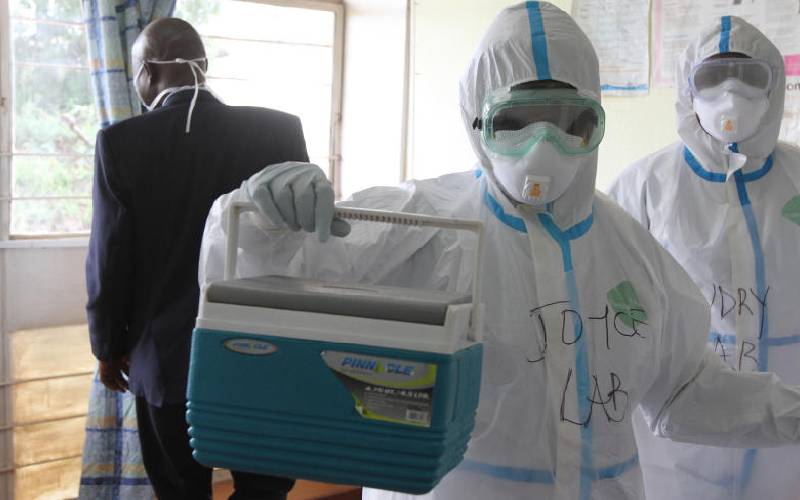×
The Standard e-Paper
Join Thousands Daily

Staff at the Kenyatta National Hospital (KNH) fully kitted in protective gear. [File, Standard]
In recent days, talk about the neglect of front-line healthcare workers in the fight against Covid-19 has dominated the news.